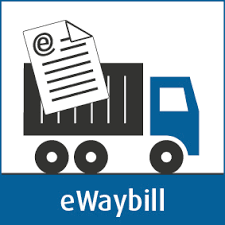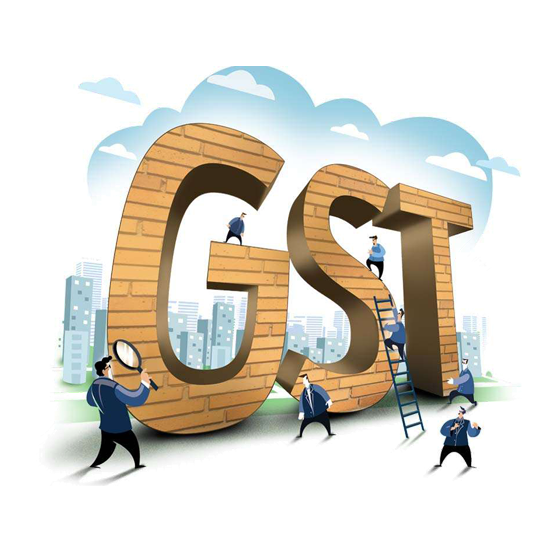- Business Startup
- Startup-Indian Entities
- Startup-Foreign Entities
- Business/Entity Conversion
- Business Registration
- Tax & ROC
- Yearly Tax Compliances
- Income Tax Return Filing
- ITR for Salaried Individuals/ Pensioner
- ITR for Capital Gain
- ITR for Companies
- ITR for House Property Income
- ITR for Income from Business
- ITR for Individuals having Share Trading
- ITR for NRIs and Resident with Foreign Income
- ITR for Partnership Firm/AOP/BOI
- ITR for Presumptive Income
- ITR for Speculation Business
- ITR for Trust, NGO and Companies
- Advisory on Tax Savings
- TDS Return Filings
- LTCG Filing and Advisory
- Income tax Notice Compliance
- Basic
- Standard
- Premium
- ITR for House Property Income and Other Source Income
- ITR for Capital Gain
- ITR for NRIs and Resident with Foreign Income
- ITR for Individuals having Share Trading or Casual Income
- ITR for Speculation Business
- ITR for Income from Business and Profession
- ITR for Presumptive Income
- ITR for Partnership Firm/AOP/BOI
- ITR for Companies
- ITR for Trust, NGO
- Advisory on Tax Savings
Yearly Tax Compliances
ITR for Salaried Individuals/ Pensioner
Income Tax Return Filing
- GST
- GST Registration (₹799)
- GST Accounting
- GST Return Filing
- GST Annual Return
- GST LUT Submission
- GST Taxpayer Registration
- GST Registration for Foreign Entity
- GST Registration Cancellation
- GST-Revocation of Cancellation
- GST Return Filing Packages
- E-way Bill Submission
- Ask an Expert-GST
GST Registration & Cancellation
- IPR
- Trademark
- Trademark Registration (₹5799)*
- Trademark (Individual) Registration
- Trademark with Logo Designers (Individual)
- Trademark with Logo Designers (Company)
- Trademark Objection Management
- Trademark Renewal
- Trademark Renewal (Company)
- MSME Compliance Trademark Registration
- Trademark Restoration
- Trademark Assignment
- Trademark Hearing
- Trademark Opposition
- Trademark Infringement
- Trademark Investigation
- Trademark Logo
- Copyright
- Copyright Registration
- Copyright Objection
- Computer Software Copyright
- Logo Copyright for Goods
- Songs Copyright
- Sound Recording Copyright
- Logo Copyright for Service
- Artistic Work/Painting Copyright
- Cinematography Copyright
- Copyright a Book
- Literature/Dramatic Copyright
- Music Notation Copyright
- Phrase/Slogan Copyright
- Symbol Copyright
- Patent
- Design
Trademark
- Trademark
- Compliance
- LLP Annual Compliance
- Winding up of Inactive LLP
- LLP Winding up by NCLT
Initial Compliance
General LLP Compliance
Changes in company
LLP Annual Compliance/ Closure
- Pay Roll
- Company
- Blog
Goods and Service Tax
GST Registration (₹799)
GST Registration (₹799)
- Overview
- Points to remember
- Process
GST Registration
The Goods and Services Tax (GST) is a tax on goods and services consumed in India. GST is an indirect tax that has replaced many other indirect taxes in India, such as excise duty, VAT, and services tax. GST has been in force from 1st July, 2017 based on the Goods and Service Tax Act passed by the Indian Parliament on March 29, 2017.
This plan will help your business adapt to GST implementation and cater to all compliance and registration requirements along with expert advisory.
Taxable person under GST
A ‘taxable person’ under the GST Act is someone who conducts business in India and is registered or needs to be registered under the GST Act. A taxable person can be an individual, HUF, company, firm, LLP, an AOP/ BOI, any corporation or Government company, body corporate incorporated under the laws of a foreign country, co-operative societies, local authorities, governments, trusts, or artificial juridical persons.
1. Services Covered
- Filing of Application for Registration
- Follow up till you secure GST Identification Number
2. Who Should Buy
- Service Providers: Any person or entity who provides service of more than Rs.20 lakhs in aggregate turnover in a year is required to obtain GST registration. In special category states, the GST turnover limit for service providers has been fixed at Rs.10 lakhs.
- Goods Suppliers: As per notification No.10/2019 any person who is engaged in the exclusive supply of goods whose aggregate turnover crosses Rs.40 lakhs in a year is required to obtain GST registration. To be eligible for the Rs.40 lakhs turnover limit, the supplier must satisfy the following conditions:
- Should not be providing any services.
- The supplier should not be engaged in making intra-state (supplying goods within the same state) supplies in the States of Arunachal Pradesh, Manipur, Meghalaya, Mizoram, Nagaland, Puducherry, Sikkim, Telangana, Tripur and Uttarakhand.
- Should not be involved in the supply of ice cream, pan masala or tobacco.
- If the above conditions are not met, the supplier of goods would be required to obtain GST registration when the turnover crosses Rs.20 lakhs and Rs.10 lakhs in special category states.
- Should not be providing any services.
- Already registered business under Central Excise, VAT or Service Tax (operating online/offline)
- A non-resident taxable person operating his or her business in India.
Voluntary GST Registration
Any person or entity that wishes to supply goods or services can obtain GST registration voluntarily, irrespective of business turnover. Voluntarily obtaining GST registration can help the business avail Input Tax Credit and also provide GST bill to customers.
Benefits of GST Registration
The following are some of the advantages of GST registration:
Bank Loans: GST registration and GST return filing serve as proof of business activity and create track record for a business. Banks and NBFCs lend to businesses based on GST return data. Hence, GST registration can help you formalize your business and get credit.
Supplier Onboarding: To become a supplier of reputed companies, GST registration is often times a must during the supplier onboarding process. Hence, GST registration can help you get more business.
eCommerce: GST registration is a must to sell online and through various platforms like Amazon, Flipkart, Snapdeal, Zomato, Swiggy, etc., Hence, having a GST registration will allow you to sell online.
Input Tax Credit: Entities having GST registration are eligible to collect GST from customer for the supply and offset the liability against GST taxes paid while purchasing various goods and services. Hence, GST registration can help you save on taxes and improve margins.
Frequently Asked Questions
What is GST and GSTIN?
Goods and Services Tax(GST) is a comprehensive tax levied on manufacture, trade and services across India. From 1st July, 2017 GST has replaced most of Centre and State imposed indirect taxes like VAT, Service Tax , Excise etc. Goods and Services Tax Identification Number (GSTIN) is a 15 digits state-wise PAN-based number to be used to identify businesses registered under GST. Click here to know your GSTIN.
Is there any time Limit for GST Registration?
Yes, GST is applicable from 1st April, 2017. The following time limit has to be observed:
- Already registered dealer will get automatic PAN based registration number without fresh application. A Provisional ID will be generated which needs to be replaced with Final Taxpayer Identification Numbe(GSTIN)r on completion of formalities.
- New dealers crossing the specified threshold limit need to get registered within 30 days from crossing of such limit.
Do I need PAN to apply for GST registration?
PAN is mandatory to apply for GST registration (except for non-resident person who can get GST registration on the basis of other documents)
Earlier I had opted for composition scheme under VAT. Is the concept of composition scheme still there under GST?
Yes, the entities with an annual turnover of Rs 75 lakh and less can avoid collecting GST by opting for the Composition Levy.
Who is an existing taxpayer?
An existing taxpayer is an entity currently registered under any State or Central laws, like Value Added Tax Act, Central Excise Act and Service Tax Act. Existing taxpayers include taxpayers already registered under :-
- Central Excise
- Service Tax
- State Sales Tax or VAT (except exclusive liquor dealers if registered under VAT)
- Entry Tax
- Luxury Tax
- Entertainment Tax (except levied by the local bodies)
Who is a non-resident taxable person under GST?
When you occasionally make supply of goods/services as a principal or agent or any other capacity, in a taxable territory, where GST applies but you don’t have a fixed place of business in India. As per GST you will be treated as a non-resident taxable person. Key pointers:
- Registration shall be valid for 90 days.
- It can be further extended by 90 days.
- An advance deposit of tax liability for the period of registration must be made. Additional tax must be deposited if extension of registration is sought.
- This tax deposited shall be used like ‘input credit’.
.
My company is still not Registered under current tax regime. Can I still buy this package?
This package is valid only if you have all the necessary documents mentioned in the “Documents to be Submitted” . If your company is not registered please have it registered with us first and then GST registration will be pursued.
I need to get my business registered in multiple locations within Maharashtra. Do I need to apply separately for each location?
If you have multiple places of businesses in same state, you can get them all registered under a single GST registration application. Give the name of your registered business place as primary place of busienss, the other branches can be added as additional places of business at no additional cost. There is no limit on number of branches that you can add under a single GST registration application, provided all the branches are in same State.
I have business in Karnataka and Maharashtra. Do I need separate GST registrations in the two states?
Yes, if place of business are in two different states you need to apply for seperate registration even if business PAN is same.
I already registered for GST in Maharashtra. Now, I have started operations in Karnataka and need to get my business registered in Karnataka under GST. What do I do?
Yes, if place of business are in two different states you need to apply for seperate registration even if business PAN is same.
What is an E-way bill?
An E-way bill is an electronic document which serves as an evidence to the movement of goods having a value of more than Rs. 50,000. It available to a supplier or an individual transporting goods. It has two components; Part A, with details such a GSTIN of the supplier and recipient, place of delivery, value of goods, HSN code, reason for transportation and part B, with details of the vehicle and transport documents.
Is it mandatory to generate an e-way bill?
It is mandatory to generate E Waybill in all cases wherein the value of consignment is more than Rs. 50,000. However, it is not necessary to generate one wherein the goods are being transported by a non- motorized conveyance or if they are being transported from the port, airport, air cargo complex, and land customs station for clearance by customs.
Can a person with no GST registration collect GST?
No, only persons registered under GST are allowed to collect GST from the customers. A person not registered under GST cannot even claim the input tax credit on the GST paid.
Mandatory documents for Online GST registration
The list of documents required for registration of GST for various business are as follows:
PROPRIETORSHIP
- PAN Card and Aadhar Card
- Photograph of Proprietor
- Trade Name
- Electricity Bill, Municipal Khata copy, Tax Bill (Not Older than 2 Months)
- Rent Agreement, Tax Bill, Index copy if any or Consent Letter sufficient
- Contact Number and Email Id
Partnership Firm or LLP
- PAN Card and Aadhar Card of All Partners
- Photograph of All Partners
- Trade Name
- Electricity Bill, Municipal Khata copy, Tax Bill (Not Older than 2 Months)
- Rent Agreement, Tax Bill, Index copy if any or Consent Letter sufficient
- Contact Number and Email Id
- LLP Agreement or Partnership Deed
- LLP or Firm PAN Card and LLP Incorporation Certificate (In case of LLP)
- Resolution for Authorization (Format will be provided).
PRIVATE LIMITED COMPANY
- PAN Card and Aadhar Card of All Directors
- Photograph of All Directors
- Trade Name if any
- Electricity Bill, Municipal Khata copy, Tax Bill (Not Older than 2 Months)
- Rent Agreement, Tax Bill, Index copy if any or Consent Letter sufficient
- Contact Number and Email Id
- Certificate of Incorporation
- MOA and Resolution for Authorization (Format will be provided).
The following can be shown as proof of address of a director:-
- Passport
- Voter Identity Card
- Aadhar Card
- Ration Card
- Telephone or Electricity Bill
- Driving License
- Bank Account Statement
Add what works as identity proof, One can use a PAN Card, Aadhar Card as identity proof. For address proof, any of the director’s can show their voters ID, passport, telephone bill, electricity bill and telephone bill.
GST Registration (₹799)
₹799.00
To make tax compliance easier, the income tax department has categorized taxpayers into many groups based on income and its source. So, you need to file your returns accordingly. Registers with GST Registration (₹799) plan and enjoy the benefits
Benefits of GST Registration ?
-
The GST will consolidate Central Excise Duty, Service Tax, VAT, Central Sales Tax, Customs Duty, Central Surcharge & Cess, Octroi, Luxury Tax, Entertainment Tax, Purchase Tax and a few other indirect taxes. The GST will apply on all goods and services. Even petrol and petroleum products will eventually be subject to it.This would make tax collection and compliance easy for businesses across the country.
-
The GST council has decided on a four-tier structure. The GST rate will depend on the type of goods and services. Currently, the slab rates are 5%, 12%, 18% and 28%
-
Currently various businesses like restaurants, computer sales and services businesses have to deal with both VAT and Service Tax regulations resulting compliance burden on the business, as they have to calculate taxes for the transaction based on different rates for different items. With the Implementation of GST Business will be made easy
-
Since in some states under the VAT regime, businesses are required to comply with VAT regulations once they cross an annual turnover of Rs.5 lakhs. Under GST regime, GST liability occurs only if an entity crosses an annual turnover of Rs.10 lakhs in northeast or hill states, whereas for rest of India, the threshold is set at Rs.20 lakhs.


























